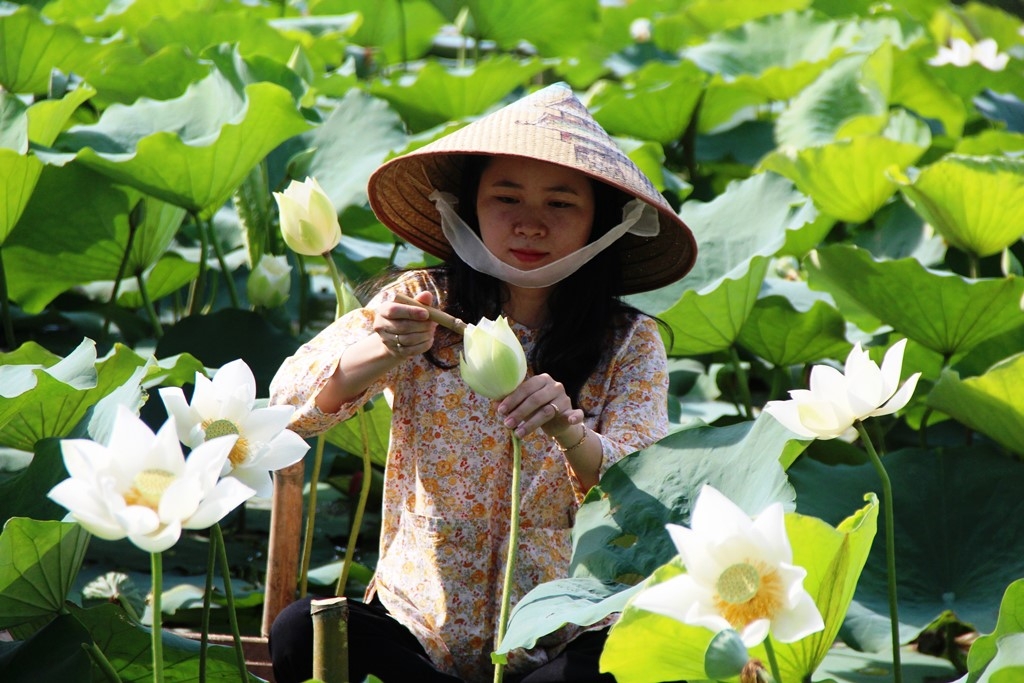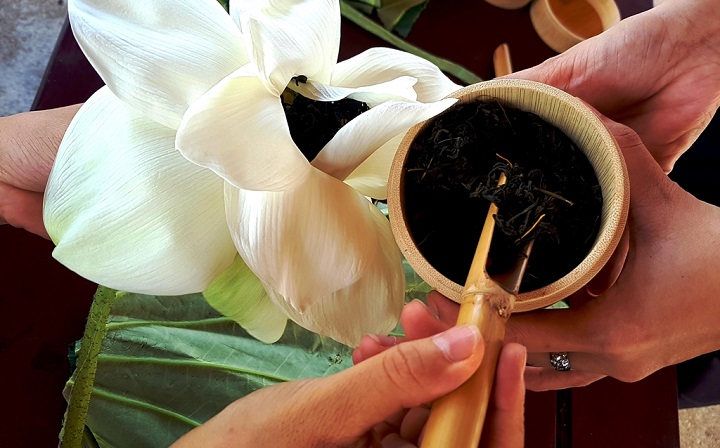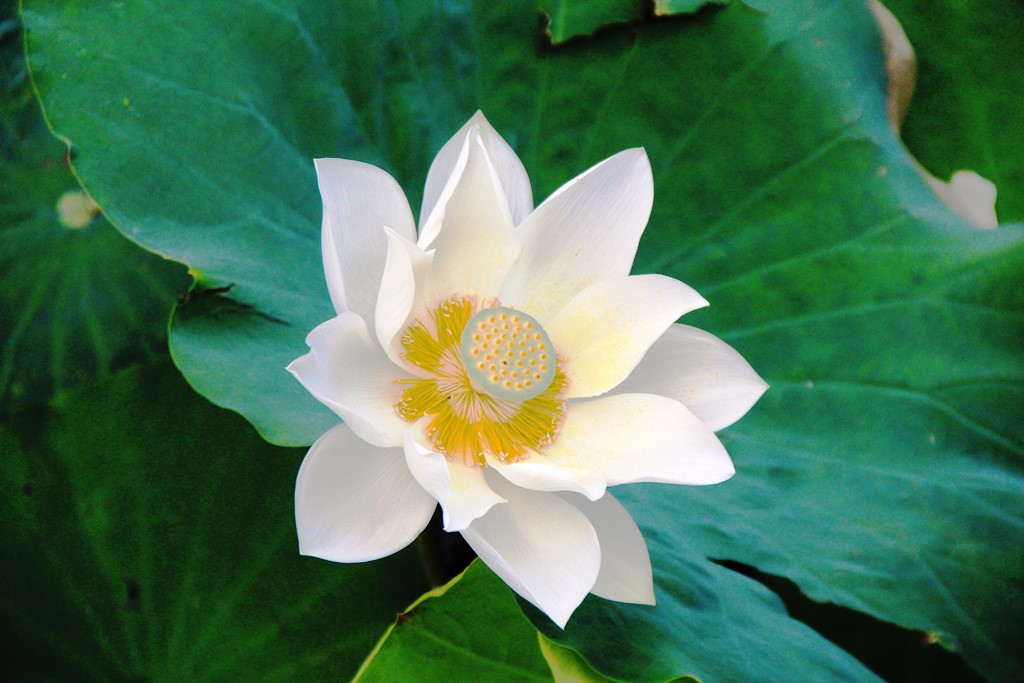After dozens of years almost becoming extinct, white lotus flowers, which are the most fragrant blossom for perfuming tea, have thrived again in Tinh Tam Lake, in Hue imperial city, for the joy of local people and tourists. This is the outcome of tremendous efforts made by local authorities and people.

White lotus flowers thrive in Tinh Tam Lake in Hue city. (Photo: baothuathienhue.vn)
Tinh Tam Lake was a scenic spot, which was listed among the 20 most beautiful places in the citadel, by Emperor Thieu Tri (1807-1847). The charm of this place was enhanced by white lotus flowers, which were grown in the lake, as offerings to the royals.
However, the lake became degraded and polluted over time, and the white lotus flowers gradually disappeared, being replaced by morning glory flowers, and high-yield pink lotus flowers.
It wasn’t until early 2021, when Nguyen Thi Hue, Director of Hue Viet Organic Co., Ltd., decided to take action to revive the lost beauty of white lotus flowers, in Tinh Tam lake.
“When I told people about my decision, many advised me to give up, because it is very difficult to plant while lotus,” Hue recalled.
To start her project, Hue bought seeds of two white lotus varieties, named ‘tret loi’ and ‘tret lom’ from the Hue Monuments Conservation Centre, and planted them in the lake at Phuoc Tich village, Phong Hoa commune, Phong Dien district, in Hue.
At the same time, Hue and her colleagues spent months cleaning Tinh Tam Lake and revitalising the lakebed, by nursing it with probiotics and organic fertilizers.
After succeeding in multiplying the lotus, Hue planted them directly in Tinh Tam lake. Her efforts were rewarded when the first bud of the white lotus flower appeared and then opened.

Dried tea leaves are placed in newly opened lotus flowers (Photo: baothuathienhue.vn)
Day after day, the lake was filled with blooming and fragrant white lotus flowers, generating much excitement among locals and tourists.
Tinh Tam lake has regained its magnificence, welcoming many people who come to witness with their own eyes, the charm of white lotus flowers, which was once thought to be extinct.
White lotus flowers grown in Tinh Tam Lake are said to be much more aromatic than lotus flowers from elsewhere, the flowers are also used to make lotus tea, a specialty of Hue.
In the blooming season of lotus flowers, dried tea leaves are placed in newly opened lotus flowers, which are then tied closed to perfume the tea. These are the same flowers which are then harvested to make tea.
According to Dr. Le Cong Son, Chief of the Office of the Hue Monuments Conservation Centre, the Nguyen dynasty paid great attention to planning and maintaining the dyke system, ponds and lakes. All lakes inside the royal palaces and emperors’ tombs were planted with white lotus flowers.
However, after decades of neglect, the lake became inundated with sewage, causing the white lotus flower to gradually disappeared.
In an effort to reinvigorate the charm of the unique landscape, Son launched a research initiative in 2007, focussing on reviving Hue’s indigenous variety of white lotus. Son and his colleagues made numerous field trips to ancient pagodas in the locality.

The fragrance of white lotus flowers grown in Tinh Tam Lake is extraordinary (Photo: baothuathienhue.vn)
Fortune smiled on the research team, when they heard of an old pagoda in Thuy Duong Commune, that had two varieties of white lotus, which had been brought from the tomb of Emperor Gia Long (1762 – 1820), the founder of the Nguyen Dynasty.
The team also found out, that the varieties of white lotus flowers can only grow in a clean environment, with high nutrition and free flowing water.
Therefore, they dredged several lakes and ponds inside the imperial citadel, in order to nurture and propagate the white lotus.
Thanks to the efforts made by Dr Son and director Nguyen Thi Hue, white lotus blossoms can now float atop the surface of Tinh Tam lake, in addition to other lakes and ponds, throughout Hue city.
The cleaning of water surfaces and revitalisation of the lakebeds in Hue city, as well as bringing life back to white lotus flowers in Tinh Tam Lake, have generated significant economic and cultural value, said Dr Tran Dinh Hang, Director of the Vietnam National Institute of Culture and Arts Studies’ branch in Hue.
He explained that the cultivation of lotus, not only helps to add more charm to the natural landscape, but also provides a source of material for the creation of many products, including lotus seeds, lotus wine and tea, and conical hats made from lotus leaves.